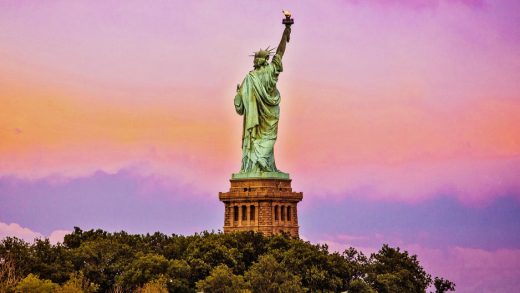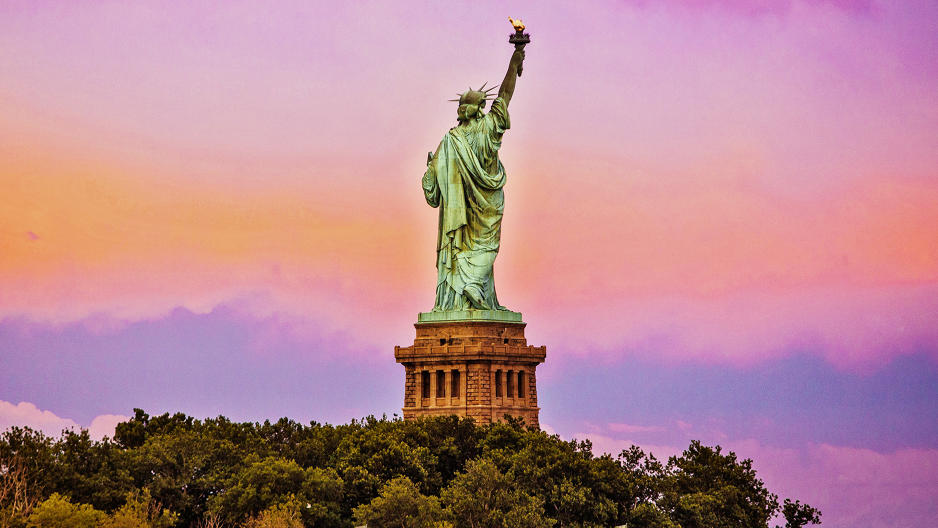How The Tech Industry Is Helping the ACLU Fill Its War Chest
I’m used to getting Facebook notifications inviting me to play games with my friends, attend events, or view a live video streams. On Saturday morning; however, I received something a little different: an invitation to donate to the ACLU.
The American Civil Liberties Union promised that when Donald Trump took office it would fight him on any policies it found to be unconstitutional and un-American. Friday, at the end of Trump’s first week in office, the ACLU made good on that promise by responding to the president’s executive order that prevents refugees and nationals of several predominately Muslim countries from entering the United States. The ACLU, along with other organizations, challenged the order in court and won a temporary stay that allowed some travelers who had already landed in the U.S. to remain here. Without the ACLU, they almost certainly would have been deported. Many are still being detained.
“This is merely the first skirmish in a long battle to vigorously defend the Bill of Rights from the authoritarian designs of the Trump administration,” ACLU director Anthony D. Romero said in a statement Saturday. If the ACLU is going to win the battle, it’s going to need a rich war chest.
The organization has always depended on donations from the public to keep its doors open. This past weekend, though, many groups took it upon themselves to help the ACLU in unprecedented ways.
When I first glanced at that donation page my friend had invited me to, the campaign had raised a little over $250,000. Now, just a few days later, that sum has topped one million. Even more impressive, the page wasn’t set up by Facebook or the ACLU, but by a private citizen (who happens to be a Facebook employee) who thought he could raise a few thousand dollars. (As of (February 08, 2017), the nonprofit had raised a total of $24 million from online donations since Saturday alone. That’s almost seven times what it raised online during the entirety of 2015.)
Facebook isn’t the only place where funds are being raised. The video game Dots added a splash page to its app, asking users to consider making a donation before they start to play.
“We welcome players from all over the world,” the page read. “As an American company, we value the diversity of our team and players. We believe America should be a welcoming place, particularly for those most in need, wherever they come from and whatever their religion. Please join us in standing up for civil rights.”
“Our hope is every individual and company that believes in civil rights finds the best way to use their voice,” Dots CEO Paul Murphy said in a statement. “For some it’s a protest, and others it’s writing a large check. We’re a fast growing, venture-backed startup, so using our cash isn’t an option. But we have a massive, global audience and heavily engaged in our products. So we decided in this unique situation it was appropriate to raise awareness for an organization they could support, if so inclined. We never anticipated 500k people would take action from our games, but we’re very proud with that result.”
Many more companies and tech executives encouraged employees and the pubic at large to contribute to the legal nonprofit this weekend, with several offering to match donations. Often, they used Twitter to spread the word.
Chris Sacca, one of Twitter’s early investors who was recently featured as an investor on ABC’s Shark Tank, tweeted Saturday that he would match donations made to the ACLU up to $75k. He later decided to match his own donation, contributing $150k.
Andrew Bosworth, Facebook’s head of advertising, pledged to match donations up to $25k. The tweet garnered so much attention that the $25k was surpassed in about an hour. To keep the momentum going, he lined up more people willing to match.
Nest founder Tony Fadell, Stripe CEO Patrick Collison, Slack CEO Stewart Butterfield, and more followed suit with proposals of their own. Sunday afternoon, Fadell tweeted that in just 10 hours more than 413 donations had been made through his tweet, totaling $110,698.
Privately, many companies are offering support for employees and employees’ families who are affected by the ban. Postmates is matching employee donations to the ACLU and International Refugees Assistance Project.
“It is evident to myself and the leadership of Postmates that these policies on immigration are morally questionable due to the impact they have on the lives that have been and will be affected,” Postmates founder and CEO Bastian Lehmann said in a statement. “We see them as contrary to the long-standing precedent that the United States is a country that welcomes, values, and embraces the diversity cultivated through immigration.”
Airbnb CEO Brian Chesky offered to provide free housing for anyone stranded outside of the United States because of the ban.
Uber has also weighed in, though not without some controversy. On Saturday night, the ride-hailing company came under fire on social media for its decision to turn off surge pricing to JFK airport when New York City taxi drivers were on strike, refusing to drive passengers to the airport, where protests against the ban were taking place. Uber’s main rival, Lyft, also continued operating during the strike, but it did not turn off surge pricing and won the PR war. By Sunday, Lyft had announced it would donate $1 million to the ACLU. Uber, meanwhile, promised legal help and three months’ financial compensation for about a dozen of its employees who are currently out of the U.S. and risk being refused re-entry because of their nationalities. CEO Travis Kalanick is a member of Trump’s economic advisory group and will be attending a meeting on Friday where, he has said, he will discuss how the ban impacts innocent people.
And finally, (February 08, 2017), Google employees, accompanied by CEO Sunday Pichai and cofounder Sergey Brin, staged a walkout. They raised over $2 million for nonprofit groups that are working with refugees (including the ACLU)—$2 million that the company matched.
At the event, Brin told the crowd that he himself was an immigrant who at one point in time would have been affected by the order.
“I came here to the U.S. at age 6 with my family from the Soviet Union, which at that time was the greatest enemy the U.S. had—maybe it still is in some form—but it was a dire period of the Cold War…And there was threat of nuclear annihilation. And even then the U.S. had the courage to take me and my family in as refugees.”
He went on to say that this debate isn’t one that should be framed as liberal versus conservative, but more as a debate about fundamental values.
“I hope this energy carries forward in many different ways beyond what our company can do, beyond what companies can do, but as a powerful force and really powerful movement.”
Fast Company , Read Full Story
(21)



